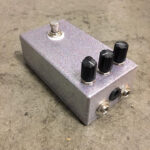Before your signal hits your amp, pedals, or even your guitar pickups, it starts its journey at the strings. The strings you choose have a fundamental impact on the sound of your electric guitar, making selection a crucial part of shaping your tone. Fortunately, the market offers a wide variety of electric guitar strings, allowing you to pinpoint the perfect set to achieve your desired sound. While you can replace strings individually, they are typically sold in sets, making it convenient for routine maintenance or upgrading your current strings. For players who perform frequently or practice extensively, buying in bulk can ensure you always have replacements on hand.
One of the primary considerations when selecting Strings On Electric Guitar is the material. Unlike acoustic guitars which can utilize bronze or brass, electric guitar strings must be crafted from magnetic alloys so that your pickups can effectively translate their vibrations into sound. This narrows your choices primarily to stainless steel, nickel, or nickel-plated strings, each offering distinct tonal characteristics.
Nickel strings are deeply rooted in the history of electric guitars, tracing back to the 1950s. This heritage makes them a favorite for guitarists seeking authentic vintage tones. Nickel strings are known for delivering a warm, smooth, and mellow sound, often preferred for blues, jazz, and classic rock styles.
Steel strings, conversely, offer a brighter, more aggressive, and punchier sound. Their robust nature also provides enhanced resistance to corrosion, making them a practical choice if you live in a humid environment or tend to sweat while playing. Steel strings are popular among rock, metal, and country players who desire clarity and attack.
For players seeking a balance between these two materials, nickel-plated strings present an excellent hybrid option. These strings combine the brilliance and strength of steel with a softer nickel outer layer. This construction offers a balanced tone, blending warmth and brightness, while also being gentler on your frets, picks, and fingertips compared to pure steel strings.
Beyond material, the gauge, or thickness, of your strings on electric guitar plays a significant role in both sound and playability. Heavier gauge strings require more tension to reach pitch. This increased tension results in higher output volume, a fuller, richer tone, and enhanced sustain, making them well-suited for rhythm guitar playing and heavier music genres where a thick sound is desired.
Lighter gauge strings, in contrast, are more flexible and produce a brighter, crisper tone. Their reduced tension makes them easier to bend and fret, facilitating faster playing and intricate lead guitar work. Lighter gauges are often favored in genres like jazz, blues, and styles that demand complex solos and fluid techniques. For beginners, starting with a lighter gauge set is generally recommended as the easier playability can aid in developing finger strength and technique.
Finally, consider whether you prefer coated or uncoated strings on electric guitar. Standard, uncoated strings offer a traditional feel and tone that many players are accustomed to. Coated strings, however, are gaining popularity for their extended lifespan. The coating protects the string from dirt, oil, and corrosion, prolonging their vibrant tone. Additionally, coated strings often have a smoother texture, which can reduce finger squeak and provide a more comfortable playing experience. Some coated strings even come in various colors, allowing for guitar personalization.
Ultimately, choosing the best strings on electric guitar is a matter of personal taste and playing style. Experimenting with different materials, gauges, and coatings is the most reliable way to discover the strings that best complement your guitar and musical preferences. This exploration is a worthwhile endeavor, as the right set of strings can significantly enhance your instrument’s sound and your overall playing experience.

